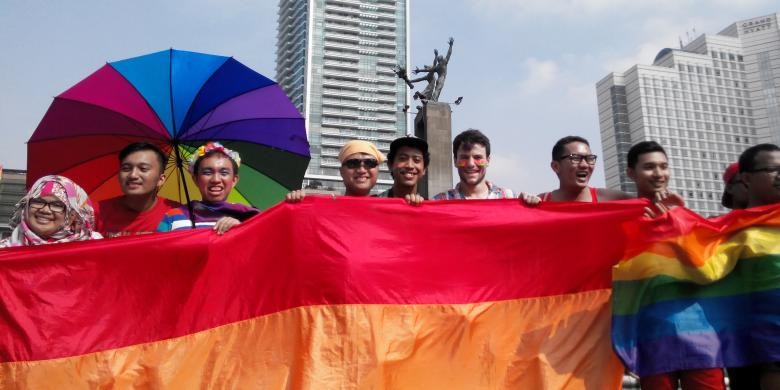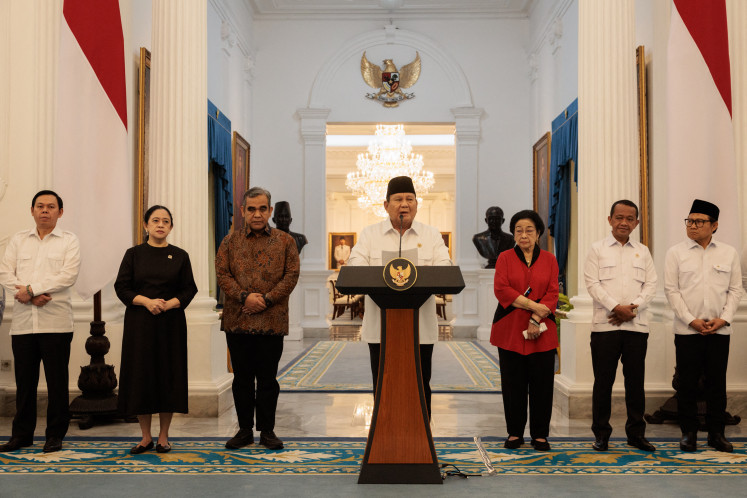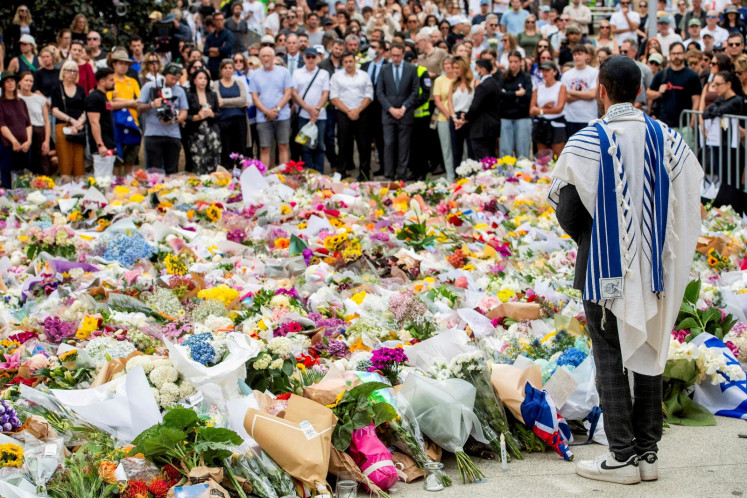Popular Reads
Top Results
Can't find what you're looking for?
View all search resultsPopular Reads
Top Results
Can't find what you're looking for?
View all search resultsMoralists at the gate
Whether the justification is for “public order” or a region’s “cultural” or “religious” values, the freedom or abuse of freedom to make such rules has led the National Commission on Violence Against Women to identify and list over 400 policies and local rules that it said discriminated against women and other minorities.
Change text size
Gift Premium Articles
to Anyone
O
n the capital’s outskirts in Depok, West Java, councillors have agreed to discuss a bylaw proposed by the Gerindra Party aiming to curb the freedoms of gender minorities. The development reported on Thursday is alarming, yet not all that unexpected.
It was Research, Technology and Higher Education Minister Muhammad Nasir who said in 2016 that lesbians, gays, bisexuals and transgender (LGBT) people should be banned from campuses. He backtracked on the statement but the public panic over students “spreading the LGBT virus” led to the closure of the Support Group and Resource Center on Sexuality Studies at the University of Indonesia (UI), located in Depok, which had a counseling service on sexuality and gender issues.
Mayor Mohammad Idris has often reiterated the administration’s pledge “to overcome” the “social deviancy” and to “block the LGBT community”. In February 2018, a “special force” was set up to “help limit the presence of the LGBT community” following the arrest of two homosexual men who allegedly spread intimate footage of their relationship via social media.
As in dozens of other regencies, municipalities and provinces, morality-based bylaws have become a fixture since the introduction of regional autonomy. Presidents, including the reelected Joko “Jokowi” Widodo, have been timid or unwilling to reprimand local leaders waving the flag of “autonomy”.
Whether the justification is for “public order” or a region’s “cultural” or “religious” values, the freedom or abuse of freedom to make such rules has led the National Commission on Violence Against Women to identify and list over 400 policies and local rules that it said discriminated against women and other minorities. The bylaws inspired by conservative Islamic interpretation known as Perda sharia have often been proposed by a coalition of political parties, whether Islamist or nationalist, with the authorities riding on and spreading moral panic, thus easily garnering support for such policies — and hopefully votes for the parties and their politicians.
Amid the drumbeat toward the April general election, two minorities became particular campaign objects of fearmongering: “communists” and “LGBT people”, worsening the precarious existence of former political prisoners and gender minorities. The panic has lent support to proposals of conservative Islamists that revisions to the Criminal Code include criminalizing gender minorities.
Such groups would be happy with more bylaws reflecting their version of Islam that they seek to impose on the nation, as part of “constitutional jihad”, and are dismissive of any Muslim defying their version.
Among such Muslims would be transgender students of the al-Fatah pesantren (Islamic boarding school) in Yogyakarta that a hard-line group demanded be closed. Its leader, Shinta Ratri, has kept it open, and she was recently presented the Front Line Defenders human rights award by an Irish-based international human rights NGO.
Allowing a rule regarding gender orientation, with the pretext of merely “curbing” the display of same-sex intimacy in the public space, will pave the way for replication elsewhere, dragging the state further into the private realm, apart from justifying further abuse against minorities in Indonesia’s democracy.










